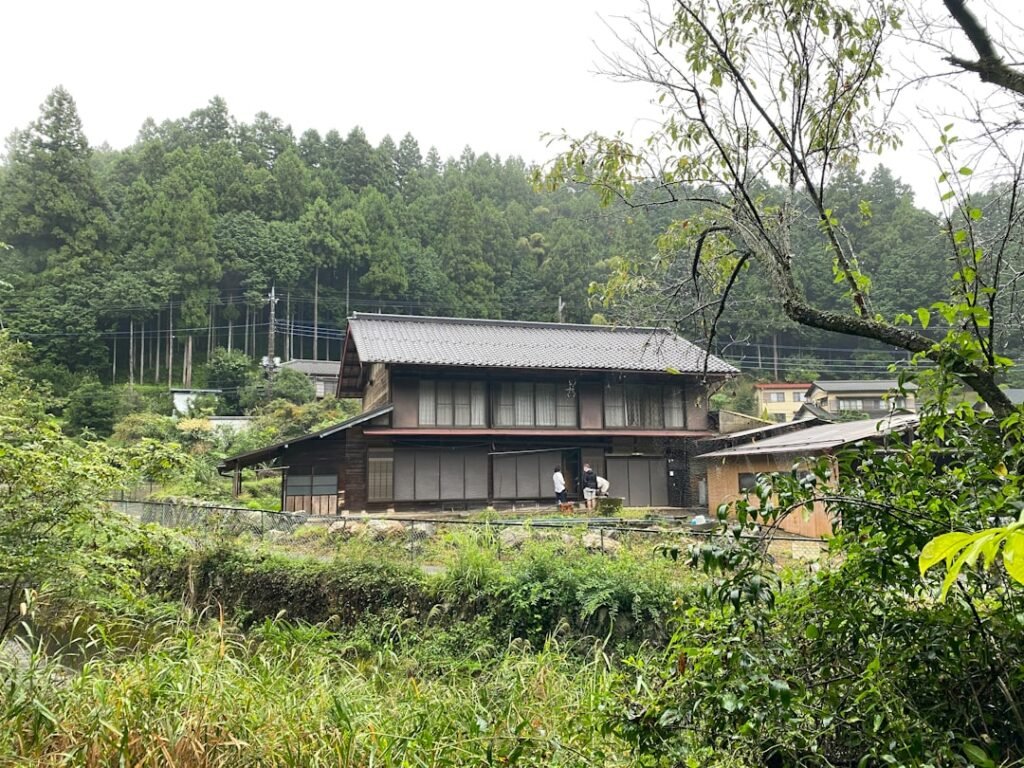

The Importance of “Itadakimasu” and “Gochisousama deshita” in Japanese Culture
In Japanese culture, the phrases “Itadakimasu” and “Gochisousama deshita” hold profound significance, transcending mere words to embody a deep-rooted appreciation for food and the effort that goes into its preparation. “Itadakimasu,” which can be translated as “I humbly receive,” is uttered before a meal, serving as a moment of gratitude for the sustenance about to be consumed. This expression encapsulates the essence of humility and respect, acknowledging not only the food itself but also the myriad of factors that contributed to its existence, from the farmers who cultivated the ingredients to the cooks who prepared the meal.
Conversely, “Gochisousama deshita,” meaning “thank you for the feast,” is expressed after a meal, signifying satisfaction and appreciation for the culinary experience. This phrase reinforces the connection between the diner and the meal, highlighting the importance of gratitude in Japanese dining culture. Together, these expressions create a framework of respect and acknowledgment that permeates Japanese society, reflecting values that extend beyond the dining table into everyday interactions. Learn Japanese at the Norwegian Language School.
Table of Contents
ToggleSummary
- “Itadakimasu” and “Gochisousama deshita” are traditional Japanese expressions used before and after a meal to show gratitude and respect.
- Saying “Itadakimasu” before a meal is a ritual that expresses gratitude for the food and the effort put into preparing it.
- “Itadakimasu” also acknowledges the meal’s preparation and ingredients, showing appreciation for the entire process of bringing the food to the table.
- “Gochisousama deshita” is said after a meal to express appreciation and satisfaction, acknowledging the meal’s completion and the host’s hospitality.
- These expressions play a significant role in concluding a meal, reflecting cultural and social importance in Japanese etiquette and values.
The Ritual of Saying “Itadakimasu” Before a Meal
The act of saying “Itadakimasu” before a meal is more than a simple ritual; it is a moment steeped in tradition and mindfulness. As diners gather around the table, this phrase serves as a collective acknowledgment of the food that has been prepared. It is a cue for everyone present to pause and reflect on the journey of the meal, from its origins in nature to its final presentation on the table.
This moment of silence fosters a sense of community and shared experience, reinforcing bonds among family and friends. Moreover, “Itadakimasu” encourages individuals to approach their meal with a sense of reverence. In a fast-paced world where meals are often consumed hurriedly, this practice invites diners to slow down and appreciate each bite.
It transforms eating from a mundane task into a mindful experience, allowing individuals to savour not only the flavours but also the effort that has gone into creating the meal. This ritualistic aspect of saying “Itadakimasu” highlights the importance of gratitude in Japanese culture, setting a tone of respect that resonates throughout the dining experience.
The Gratitude and Respect Expressed Through “Itadakimasu”

The expression of gratitude inherent in “Itadakimasu” extends beyond mere politeness; it embodies a philosophy that permeates various aspects of Japanese life. By acknowledging the food before them, individuals express respect for nature and its bounty. This appreciation is deeply rooted in Shinto beliefs, which emphasise harmony with nature and gratitude for its gifts.
Thus, saying “Itadakimasu” becomes an act of reverence not only for the meal but also for the environment that sustains life. Furthermore, this phrase serves as a reminder of the interconnectedness of all beings involved in the food chain. From farmers to chefs, each person plays a vital role in bringing food to the table.
By expressing gratitude through “Itadakimasu,” diners honour these contributions, fostering a sense of community and shared responsibility. This respect for others is a cornerstone of Japanese etiquette, reinforcing social bonds and promoting harmony within relationships.
The Acknowledgment of the Meal’s Preparation and Ingredients
When one utters “Itadakimasu,” it is not merely an acknowledgment of food; it is an appreciation for the intricate process that brings ingredients together to create a meal. Each dish tells a story, reflecting regional flavours, seasonal ingredients, and culinary traditions passed down through generations. By recognising this complexity, diners cultivate an understanding of food as an art form rather than just sustenance.
Moreover, this acknowledgment extends to the ingredients themselves. In Japan, there is a strong emphasis on using fresh, seasonal produce, which enhances not only flavour but also nutritional value. By saying “Itadakimasu,” diners honour these ingredients and their journey from farm to table.
This respect for quality and provenance is integral to Japanese cuisine, where each element is carefully selected to create harmony within a dish.
The Tradition of Saying “Gochisousama deshita” After a Meal
Just as “Itadakimasu” marks the beginning of a meal, “Gochisousama deshita” signifies its conclusion. This phrase encapsulates a sense of fulfilment and gratitude for the culinary experience just enjoyed. It serves as an opportunity for diners to reflect on their meal, acknowledging not only their satisfaction but also the effort that went into its preparation.
In many households, this expression is accompanied by a bow or gesture of thanks, further emphasising its significance. The tradition of saying “Gochisousama deshita” also reinforces social bonds among those who shared the meal. It acts as a communal expression of appreciation, allowing everyone at the table to participate in acknowledging the meal together.
This collective gratitude fosters a sense of unity and connection, reminding diners that they are partaking in something greater than themselves—a shared experience that transcends individual enjoyment.
The Expression of Appreciation and Satisfaction with “Gochisousama deshita”

The phrase “Gochisousama deshita” encapsulates not only appreciation but also satisfaction with the meal consumed. It serves as an affirmation that the food was enjoyed and valued, reinforcing positive feelings associated with dining experiences. This expression allows individuals to articulate their enjoyment while simultaneously recognising the skill and effort involved in preparing the meal.
In many ways, saying “Gochisousama deshita” can be seen as an invitation for further culinary exploration. By expressing satisfaction with one meal, diners may feel encouraged to seek out new flavours and experiences in future dining occasions. This cycle of appreciation fosters a culture of culinary curiosity and adventure, where individuals are motivated to explore diverse cuisines and cooking styles.
The Role of “Gochisousama deshita” in Concluding a Meal
As a concluding remark after a meal, “Gochisousama deshita” plays an essential role in signalling closure to the dining experience. It marks the transition from eating to conversation or other activities, allowing diners to shift their focus while still honouring what has just been consumed. This transition is significant in Japanese culture, where meals are often seen as communal events that foster connection among participants.
Additionally, this phrase serves as an opportunity for reflection on the meal itself. It encourages diners to consider what they enjoyed most about their experience—the flavours, textures, or even the company they shared it with. By taking a moment to articulate their thoughts through “Gochisousama deshita,” individuals engage in a practice of mindfulness that enhances their overall appreciation for food and fellowship.
The Cultural and Social Importance of “Itadakimasu” and “Gochisousama deshita”
The cultural significance of “Itadakimasu” and “Gochisousama deshita” extends far beyond individual meals; these phrases encapsulate core values within Japanese society. They reflect an ethos of gratitude that permeates various aspects of life, encouraging individuals to acknowledge and appreciate their surroundings. In this way, these expressions serve as cultural touchstones that reinforce social cohesion and mutual respect.
Moreover, these phrases are often taught from an early age, instilling values of gratitude and mindfulness in children as they learn about food and dining etiquette. This early education fosters a sense of responsibility towards food consumption and preparation, encouraging future generations to carry forward these traditions. As such, “Itadakimasu” and “Gochisousama deshita” become integral components of Japanese identity, shaping not only dining practices but also broader societal interactions.
The Connection to Japanese Values and Etiquette
The practice of saying “Itadakimasu” and “Gochisousama deshita” is deeply intertwined with Japanese values such as respect, humility, and gratitude. These expressions embody principles that are central to Japanese etiquette—acknowledging others’ efforts while maintaining a sense of modesty about one’s own experiences. In this context, dining becomes not just an act of consumption but an opportunity for individuals to engage with these values meaningfully.
Furthermore, these phrases highlight the importance of community within Japanese culture. By expressing gratitude collectively before and after meals, individuals reinforce social bonds that are essential for harmonious living. This emphasis on community extends beyond dining experiences; it permeates various aspects of daily life in Japan, where cooperation and mutual support are highly valued.
The Impact of “Itadakimasu” and “Gochisousama deshita” on Japanese Daily Life
The influence of “Itadakimasu” and “Gochisousama deshita” extends into daily life beyond mealtimes. These expressions serve as reminders to cultivate gratitude in various situations—whether it be acknowledging someone’s help or appreciating nature’s beauty. By incorporating these phrases into everyday interactions, individuals foster an environment where appreciation becomes second nature.
Moreover, this practice encourages mindfulness in daily routines. Just as one pauses before a meal to express gratitude through “Itadakimasu,” individuals can apply this mindset to other aspects of life—taking moments to reflect on their experiences or acknowledge others’ contributions. This shift towards mindfulness can lead to greater overall well-being and satisfaction in life.
The Influence of “Itadakimasu” and “Gochisousama deshita” on Japanese Cuisine and Hospitality
The expressions “Itadakimasu” and “Gochisousama deshita” have significantly influenced Japanese cuisine and hospitality practices. Chefs take pride in creating dishes that not only satisfy hunger but also evoke emotions through flavour combinations and presentation. The knowledge that diners will express gratitude through these phrases motivates chefs to elevate their craft continually.
In terms of hospitality, these expressions set a standard for service in Japan’s dining establishments. Hosts strive to create memorable experiences for guests by ensuring that every aspect—from ingredient selection to presentation—reflects care and attention to detail. This commitment to excellence is reinforced by diners’ expressions of gratitude after meals, creating a cycle where both chefs and patrons contribute to an enriching culinary culture.
In conclusion, the phrases “Itadakimasu” and “Gochisousama deshita” encapsulate essential aspects of Japanese culture—gratitude, respect, mindfulness—and serve as powerful reminders of our interconnectedness with food and each other. As we navigate our daily lives, embracing these expressions can enrich our experiences and foster deeper connections with those around us. For those interested in exploring these cultural nuances further, enrolling in Japanese courses at NLS Norwegian Language School offers an excellent opportunity to delve into language learning while gaining insights into Japan’s rich culinary traditions and etiquette practices.
Ready to speak Japanese? Enroll for Japanese classes at the NLS Norwegian Language School!
If you want to learn Norwegian, you can register for classes here. We look forward to hearing from you and helping you become fluent in Norwegian.





